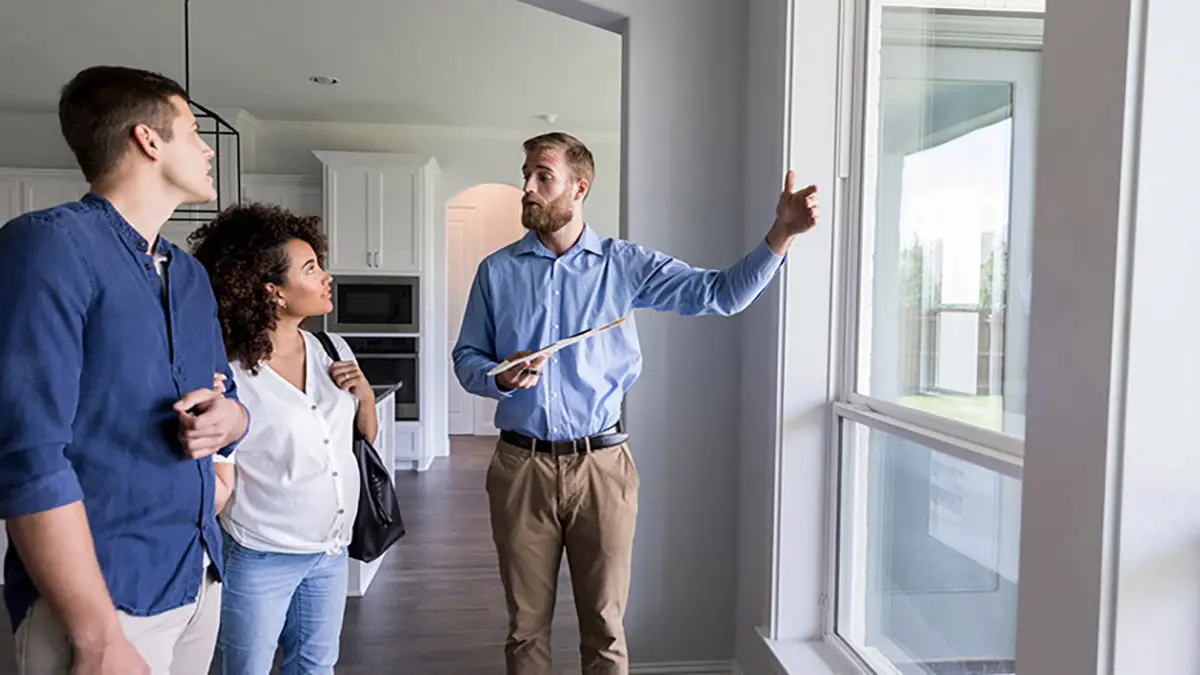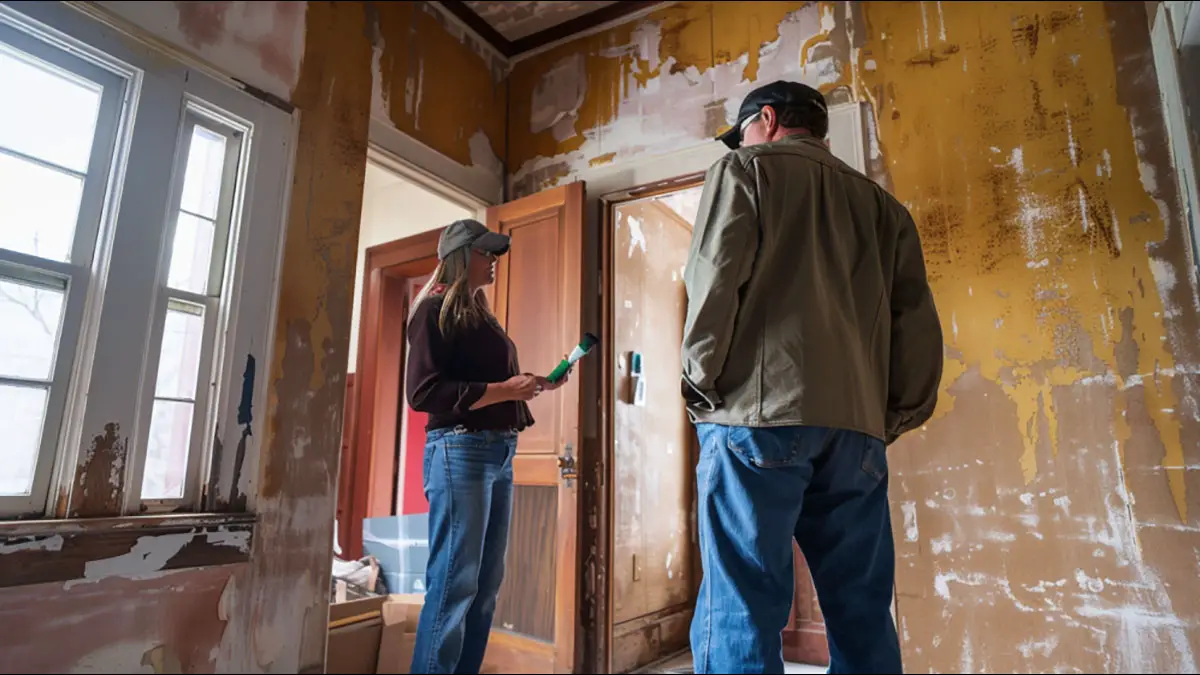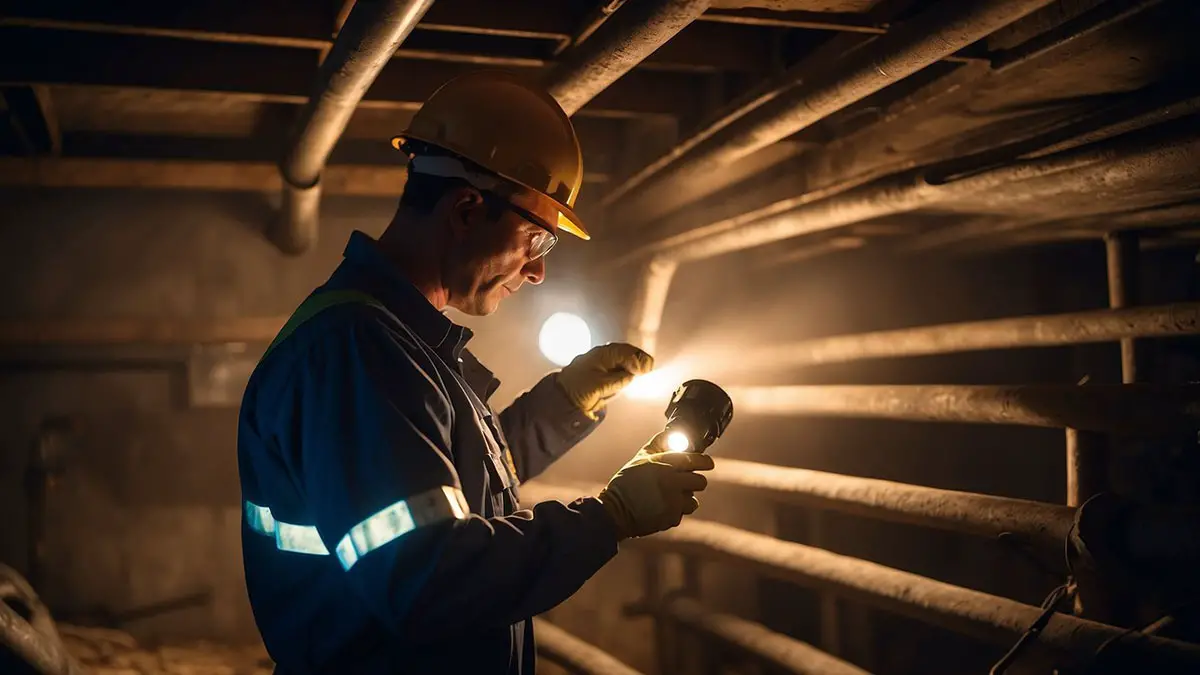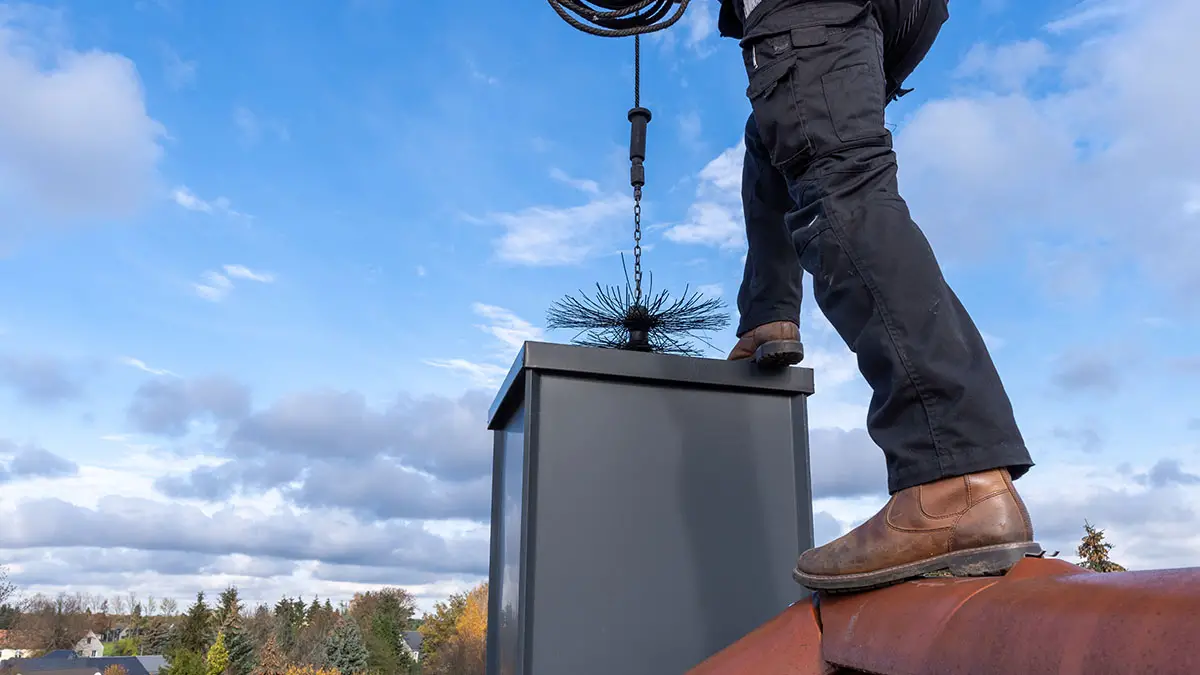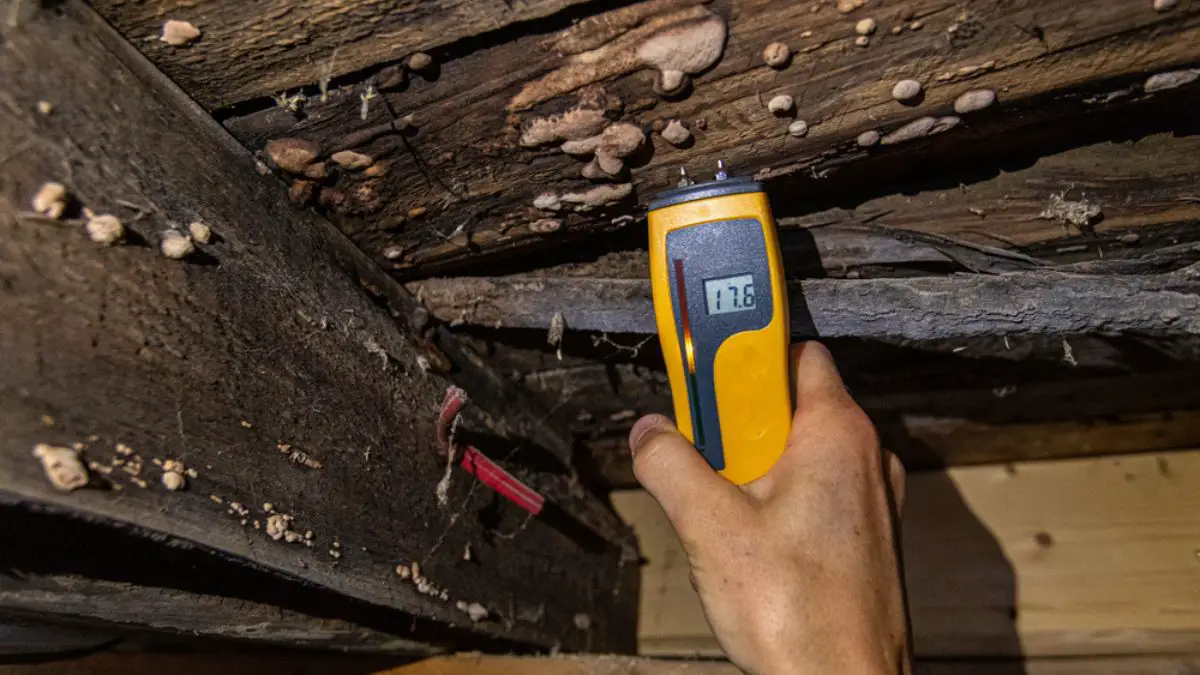f
Buying a home for the first time can be an overwhelming and daunting experience. We’ve compiled a list of home inspection tips for first-time buyers to help make the process easier.
Buying their first home can be exciting yet stressful for first-time home buyers. Making the wrong financial decisions is a risk. Don’t overlook the importance of a first-time home buyer inspection. Hire a professional home inspector to ensure no surprise repairs when you move in.
10 Home Inspection Tips for First-Time Buyers
An experienced home inspector will answer several questions about the house you’re looking to buy. Is the foundation good? Does the roof leak? How long will the heating and cooling system last?
Your lender won’t require a home inspection; however, having a home inspection can help you avoid home inspection deal breakers and red flags. Here are ten home inspection tips for buyers you should know.
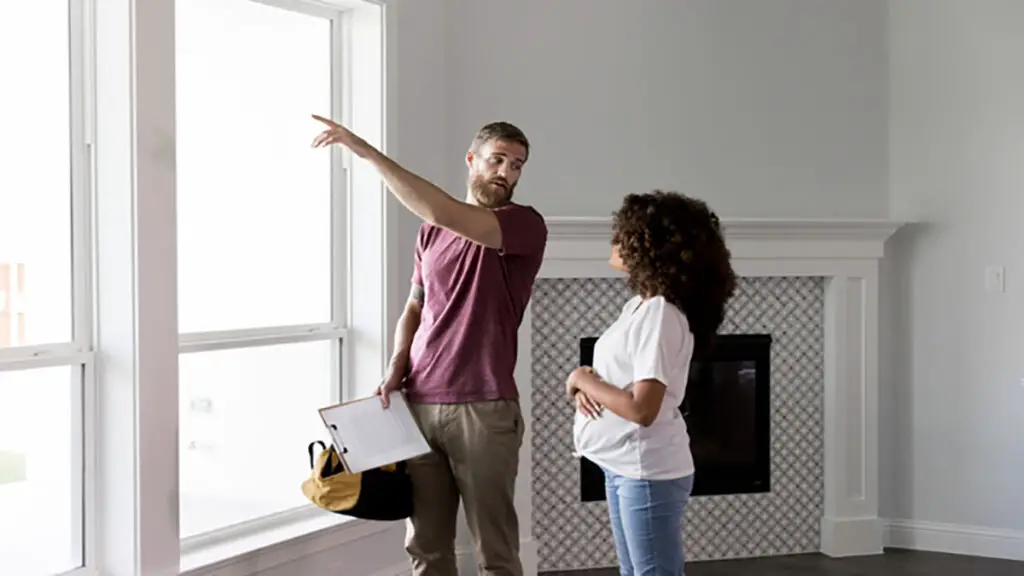
1. Don’t Waive Your Home Inspection
When you make your offer to purchase, you should include a home inspection contingency clause. You made the offer because you like the house, and it looks to be in good condition. You may feel like you can save a few hundred dollars by waiving the home inspection.
That’s a big mistake. Home inspectors are independent third parties that represent you, the buyer. The home inspector does not have an interest in the property being inspected and provides a thorough examination of the house to look for problems such as a failing foundation, leaky roof, and unsafe electrical issues, to name a few.
By waiving the home inspection contingency, you are accepting the house as-is. If a problem arises, you lose the opportunity to have the seller correct the problem or exit the contract. Most homes have a home inspection fee between $400 and $600. This is only a small fraction of the house’s purchase price.
The home inspection will take about 2 to 3 hours to complete. Allow a little longer if you will be asking your home inspector questions.
2. Not All Home Inspectors are State Licensed
Surprisingly, not all states require licensing for home inspectors. As of this writing, eighteen US States still do not have licensing laws to regulate home inspection businesses. You can check on licensing requirements for your state at https://www.homeinspector.org/Resources/State-Regulations.
That doesn’t mean that home inspectors in these states are not qualified. Two primary home inspection certification organizations exist: the International Association of Certified Home Inspectors (NACHI) and the American Society of Home Inspectors (ASHI). Each has its strict certification program and includes all 50 states.
When hiring a home inspector, you need to ask these questions:
- What organization are you certified through? If the home inspector you are speaking with is not approved through NACHI, ASHI, or a Certified Master Inspector, you may need to call another home inspector.
- Where can I go to confirm your credentials? NACHI, ASHI, and the Certified Master Inspector Board have members search directly on their websites.
- You can search for NACHI Certified Professional Inspectors here.
- You can search for ASHI Home Inspectors here.
- You can search for a Certified Master Inspector by visiting the Certified Master Inspectors Board website.
- Can you provide references? Ask the home inspector for references. They should be able to provide you with other real estate agents and client references. You can also check for Google Business reviews, Facebook reviews, Yelp, etc.
- Where can I view a sample inspection report? Ask the home inspector if they can provide a copy of a sample inspection report. Most inspectors have one on their website. Others may be able to email you a sample inspection report.
- Can I attend the home inspection? Some home inspectors don’t like clients present for the inspection. It would help to choose a home inspector who welcomes and encourages your attendance.
- Are you insured? You want a home inspector insured for errors, omissions, and general liability. Most home inspectors will have a $1,000,000 coverage policy.
3. Don’t Hire the Cheapest Home Inspector
Everyone likes to save money, and everyone likes getting a great deal. However, this is your future home we are talking about here. This is not the time to hire Cheap Charlie. When home inspectors start a business, they likely have no base of referrals to work off of to build a business.
So what do they do? They offer cheap home inspections to lure real estate agent referrals. The problem is these home inspectors are inexperienced. They know very little about conducting home inspections in the real world. There is nothing wrong with being inexperienced because we all have to start somewhere, but let them cut their teeth on someone else’s house, not yours.
Home inspection schools teach you the basics to pass an exam, whereas home inspections can only be mastered by doing them repeatedly. It’s something that’s learned hands-on, not in a classroom.
Many experienced home inspectors are certified in more than just home inspections. Being certified to perform infrared scanning, sewer scopes, mold, radon, etc., takes time. Experienced home inspectors may cost a little more, but considering the wealth of knowledge and service provided, it’s arguably the better value.
4. Home Inspectors and Pest Inspectors Aren’t the Same
As part of your first home purchase, you’ll need to have two inspections done: the home inspection and the wood-destroying organism inspection (often referred to as a termite inspection). While both inspections look at similar things, there are vast differences between the two inspection types.
As discussed earlier, the home inspection thoroughly examines a house, its condition, and its mechanical components.
A home inspector examines the foundation, including structural, electrical, plumbing, and mechanical systems, estimating the roof and mechanicals’ age, such as the heating and cooling system and the water heater.
A pest control company inspects a wood-destroying organism and documents the presence of wood-destroying organisms such as termites, carpenter ants, beetles, bees, and fungi.
These organisms feed on structural components like wood framing and trim. If any wood-destroying organisms are found, the pest control specialist can provide treatment to exterminate the organisms. A licensed building contractor for repair will refer to any damage.
5. Home Inspectors are not Building Code Inspectors
Building code inspectors and home inspectors are often mistaken as the same thing, but they’re not. While both have similar training and knowledge, code inspectors are rarely a part of real estate transactions.
Building code inspectors are city or county employees who inspect new construction homes and commercial buildings to verify that building codes are met. Building code inspectors can levy fines, enforce building codes, and even condemn properties.
On the other hand, while home inspectors know the code to inspect and document defects, they do not have the authority to force a homeowner to correct an issue with the house. That doesn’t mean they can’t enact change because they can.
When a home inspector documents and reports deficiencies, homeowners either make the needed repairs or risk losing a property sale.
It’s in their best interest to make the repairs because if the sale falls through before the house goes back on the market, they must disclose any known problems.
6. You Should Attend Your Home Inspection
First-time home buyers should attend their home inspection. You are not required to attend if you don’t want to. However, the home inspection is an excellent opportunity for you to learn the ins and outs of the home you are purchasing from a trained professional.
You can walk around with your inspector and review the inspection findings. Your inspector will point out defects and show you where things are located, such as the breaker panel, main electrical disconnect, and main water shutoff.
You can bring a camera and a tape measure to measure the rooms and take additional pictures. Walk around with your inspector and take lots of photos. It’ll help you recall things when it comes time to review your home inspection report.
7. Understand What a Home Inspection Covers
Here is what you can expect from a qualified inspector:
- First, they will inspect all the visible, physically accessible, and observable systems, elements, and building components.
- Then, they will provide you with a report of the inspection’s outcome. The report will inform you of their discoveries, recommendations, explanations, and more.
What a home inspection will include will depend on where you are living. However, there are set minimum standards for a home inspection followed by home inspectors who have agreed and signed to that standard.
A home inspector will inspect the following areas of a home:
- The foundation and structure: Structural issues, including deficiencies in the floor, walls, ceiling, and roof structure.
- Roof: The roof’s condition, the materials used, drainage system, chimneys, skylights, and flashing. They will inspect for any repairs or damage to the shingles and gutters.
- Electrical systems: They will ensure the systems are up to standard and the electrical wiring works. This includes the overcurrent protectors, grounding, electrical outlets, switches, and circuit breakers.
- Plumbing: They will check for plumbing issues like water heater defects, damaged pipes, properly working sinks, drains, wastewater drains, pumps, pipes, and more.
- Heating systems: They will inspect the heating equipment, including chimneys, fireplaces, venting, and distribution systems.
- Air conditioning: The condition of the central and other cooling systems and air distribution.
- The condition of any appliances: They will check stoves, refrigerators, dishwashers, microwaves, washer machines, dryers, fireplaces, etc.
- Basement, Attic, and Garage: Their foundations, walls, floors, windows, framing, roof, wiring and electrical systems, outlets, ventilation, etc.
- Exterior: the condition of the exterior paint and siding, lights, outlets, and more.
- Safety features: fire and carbon monoxide alarms, sprinklers, the condition of staircases, guardrails, etc.
- Grounds: They will inspect the condition of sidewalks, driveways, and fences.
Also, check out our article Common Home Inspection Issues & Their Repair Costs for more information on home inspection issues and potential repair costs.
8. Understand Home Inspections have Limitations
While a home inspector will thoroughly examine the home, they still don’t inspect it as part of a professional home inspection. Fear not, though. Most inspectors will offer these as ancillary inspections.
- Detached structures: including sheds, carports, workshops, etc.
- Swimming pools and equipment: including pool and pool equipment, pumps, filters, spas, and detached hot tubs
- Trees and landscaping include vegetation (unless it touches the house), lawns, and flower beds.
- Sewer lines and septic tank: underground septic tanks, pumping stations, leach field, and underground piping.
- Lawn sprinklers: including sprinkler control panels, piping, sprinkler heads, and water flow.
- Pest infestation: pest infestations include termites, bees, ants, etc.
- Hazardous Materials: including mold, lead paint, asbestos, and radon gas.
We published an article What a Home Inspection Includes and 27 Things That Aren’t Included that goes into more detail regarding what is and is not covered in a home inspection.
9. Ask Your Home Inspector Questions
As a first-time home buyer, you will have many questions about the home inspection. This is a great time to ask as many questions as possible. To get you started, here is a list of eight typical first-time home buyer inspection questions you should ask:
- What does that mean? If your inspector says something you don’t understand, don’t be afraid to ask for clarification.
- Is that something I should be concerned with? Often, inspectors will say things that sound worse than they are. If in doubt, ask your inspector if this is a major or minor issue.
- Is that a water stain, and if so, is it a problem? If you see what looks like a water stain on the ceiling and the home inspector hasn’t mentioned it, ask about it. It may be only a cosmetic concern, or it could be something that was overlooked.
- Could that be mold, and should I have it tested? Mold scares people, and rightfully so. If you suspect mold in a house, ask your home inspector if they can test it. Lab results usually take 3-5 days to process.
- How do I maintain the heating and cooling system? This is a big part of your home’s maintenance, and it needs to be maintained, or you risk it quitting on you at the worst possible time.
- Will I need to replace the water heater soon? Water heaters don’t last forever. The typical lifespan is 8 to 12 years. Your home inspector will tell you how old it is and if they think it will need replacement soon.
- What’s the biggest concern with the house? Ask your home inspector to bottom-line it for you and tell you the most significant concerns. These could be worn-out roofs, an old heating system, or windows that may affect energy costs.
- What should I ask the owners to repair? Not all the repairs your home inspector mentions will be repairs you can ask the owner to fix. Normal wear and tear is generally not something a seller will fix. Sellers will only fix significant items such as a leaky roof, nonfunctioning mechanical systems, foundation and structural issues, and safety issues.
- Read Your Entire Inspection Report. When your inspection report arrives, one of the most important things you can do is read the entire report, not just the summary. Your report will likely be 60-100 pages long, but most of that is taken up with photos, so don’t let that discourage you. Here are some things that will help you:
As you read your inspection report, note anything you don’t understand. Call your home inspector to ask questions and clear up things you don’t understand. Sit down with your real estate agent to make any repair requests.
If there are any major undisclosed issues on the home inspection report, you may want to rethink your decision to buy the home. Minor repairs aren’t a big deal—but significant problems can take a toll on your wallet and sanity for years.
10. Get the Repairs Re-inspected
If you’ve negotiated repairs with the homeowner, be sure to have the repairs re-inspected by your home inspector. While licensed contractors complete many repairs, some aren’t. If a licensed contractor does not perform repairs, the repairs may not be done correctly. Having your inspector look at the completed work can ease your mind and give you peace going to closing.
For more info on negotiating home inspection repairs, see our article Negotiate Home Inspection Repairs Like a Pro – Homebuyers Guide.



